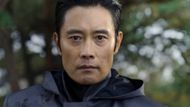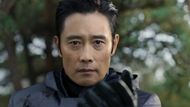In the dark, corrupt world of Squid Game, few characters are as mysterious and morally complex as Hwang In-ho, also known as the Frontman. He was first presented in Season 1 as the masked manager of the lethal games. At first, he was assumed to be a cold, calculating villain. But as the series went along, particularly through the jarring twists of Squid Game Season 3, traces of his character were stripped away to show us a richly conflicted man tormented by guilt, weighed down by tragedy, and gradually awakening to the brutality of the regime he had once supported.
Season 3 gives us the biggest development in In-ho's journey, setting him up as something more than a dark figure of power. His subtle defiance, emotional choices, and kind gestures sketch out the picture of a man on the precipice of change. Viewers who hated him before are now wondering if Frontman will be a hero in future installments.
This piece delves into seven compelling reasons why Hwang In-ho is ready to emerge from the shadows and step into the limelight not as a bad guy, but as a grossly flawed hero. With redemption, regret, and rebellion all on the table, his journey could be just starting.
7 Reasons to believe Hwang In-ho, a.k.a The Frontman, will turn into a protagonist in Squid Game
1. His hidden compassion in Squid Game Season 3

Season 3 proved the Frontman isn't the ruthless puppet master viewers thought initially. Choosing to save a newborn amid the Game's destruction was more than just a twist. It was an emotional pivot. Rescuing the baby and ensuring the prize money went to Gi-hun's daughter, Hwang In-ho demonstrated profound empathy that few villains have ever exhibited. That scene broke the notion that he's irredeemable.
It's a strong suggestion that he might emerge as an unwilling hero in later chapters, but one who has been steered by the moral principles he fought so hard to subdue when trapped in the system.
2. A brother’s guilt that can’t be ignored since Season 1

Hwang In-ho's tense relationship with his brother, Jun-ho, still burdens his conscience. Although he shot him in Season 1, Season 3's flashback emotions and the attempt to give the prize to Jun-ho's niece indicate regret. The emotional scarring hasn't dissipated; it's driving him to redemption. His subtle gestures indicate he still regards his brother as his ethical compass. If Jun-ho is still alive, their reunion could be the spark that completes In-ho's transformation.
His guilt, now finally out in the open, pushes him away from being the Frontman and towards the path of the torn protagonist.
3. The moral dilemma of being the Frontman in Season 1

Already in Season 1 of Squid Game, the groundwork for Hwang In-ho's moral struggle had been laid. As Jun-ho goes undercover inside the Game and In-ho understands that his brother is on staff, for a moment, his calculating facade cracks. Shooting his own brother, taking his time before actually drawing the gun, was not an act of cruelty, but of survival within an institution he no longer entirely believes in. His hesitation and refusal display that he's not blindly devoted to the cause.
These initial scenes, which are usually underappreciated, now seem like introductory clues that he wasn't ever simply a villain. Season 1 already set him up as an ambivalent soul in disguise.
4. Clues from Lee Byung-hun’s performance in Season 3

Rather than trusting only creator clues, Lee Byung-hun's performance of Hwang In-ho in Squid Game Season 3 provides subtle hints at a change in the character's moral axis. His gestures, long silences, haunted glances, and visible unease confer emotional depth not captured through words. Particularly in scenes of loneliness, Lee's performance portrays inner conflict and remorse. Critics have lauded his subtle performance, describing it as a "masterclass in restraint."
These acting decisions suggest that In-ho is psychologically drawing back from the savagery of the Game, sublimely identifying with a protagonist's emotional journey. His silence, paradoxically, says everything.
5. His disillusionment with the Game’s System in Season 3

Season 3 handles the Frontman's disintegrating loyalty perfectly. Quietly defying the VIPs, then sabotaging them, In-ho is no longer the VIPs' man. His flashbacks to the tragedy that killed his wife and child and drove him into the Game are heart-wrenching. They also make it clear that he's been the system's victim for a long time. This disillusionment crescendos throughout the season until he finally betrays the Game's creators by being a part of helping to bring it to an end.
It's a choice that screams protagonist-in-the-making. Disillusioned leaders make for great heroes in dystopian stories, and Squid Game is looking poised to follow suit.
6. The power struggle that could push him to rebel in Season 3

By Season 3, the Frontman is definitely more than a pawn. He's a wild card in the game of power. When he blew up the island and passed the prize money and baby to Gi-hun's daughter, it was a clear act of rebellion. Fandom whispers speak of a new Game emerging without VIP dominance, and In-ho might be the one to spearhead it. His insider understanding and leadership capabilities make him the central figure in what's next.
Protagonists aren't always heroes. They're agents of change. And Hwang In-ho, poised on the precipice of rebellion, seems to be about to rock the system to its foundations.
7. Perfect antihero setup for Squid Game Season 4’s arc

Hwang In-ho now becomes the quintessential antihero, broken, morally gray, but salvageable. Season 3 concludes with him disappearing into the night after a string of acts of defiance, leaving us all to wonder: what's next? If Season 4 (or a spinoff) is about rebelling against the remnants of the Game, he's the perfect protagonist. He knows the cynicism of the system because he contributed to it. And now he might be the sole one who can tear it down.
His trajectory as a past champion, Frontman, and quiet liberator is complex, and all indications suggest a protagonist shift in response to pain, rebellion, and righteousness.
Hwang In-ho's development throughout Squid Game has progressed from mute enforcer to conflicted leader, and his future storyline is perhaps the most eagerly awaited aspect of the series. With Season 3 exposing fissures in his ice-queen exterior and suggestions of a conscience stirring, the foundations are now securely set for his evolution into a hero. Whether guilt, rebellion, or redemption drives him now, his actions are increasingly more those of a tragic antihero than a villain.
As Squid Game begins the next chapter, every indication is that the Frontman will be taking on a new role, a role that turns everything we believed we knew on its head.
